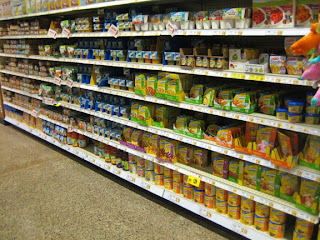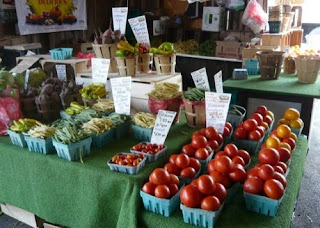 Today is a big day. Millions will rally worldwide to protest the company Monsanto, the leading producer of Genetically Engineered (GE) seed and the weed killing chemical Round Up.
Today is a big day. Millions will rally worldwide to protest the company Monsanto, the leading producer of Genetically Engineered (GE) seed and the weed killing chemical Round Up.
Genetically Modified Organisms (GMO's) are the crops of GE seeds which are resistant to weed and insect killers, like Round Up, so farmers can produce a larger yield of produce. GMO's can be found in most industrialized foods, but are not currently required to be printed on the label.
Not only are the practices to produce these crops deemed bad for the environment, it is still questionable if GMO's are actually safe to consume. There have been many links to a variety of growing health problems including cancer, infertility, allergies and so much more.
Monsanto grossed close to $12 billion dollars last year in GM foods. Commercial sale of genetically modified foods began in 1994. Monsanto feels that they are solving a problem of population growth and keeping up with the demand of food is only possible with genetic engineering.
GMO's have been banned in many countries such as China, Japan, Brazil, Italy, Greece, England, Ireland, Germany, Spain etc, etc, etc. As you may have noticed, the United States is not on the list. It is actually the American norm to consume GMO's on a daily basis without knowing it.
Monsanto doesn't feel that they are responsible for consumer safety and thinks "labeling GMO products accordingly would be just like putting a skull and crossbones on the label", said the President of a Monsanto subsidiary, Asgrow Seeds. The director of communications at Monsanto, Phil Angell also added, "Monsanto should not have to vouchsafe the safety of biotech foods. Our interest is in selling as much food as possible. Assuring the safety is the FDA's job." Why isn't the FDA protecting us, you might ask. Rumor has it that many of the major players in the FDA have invested interest in the large industrial food companies or Monsanto itself.
Bottom line, America is sick because of corporate greed. Awesome. Although it is not the convenience that we are used to, for you and your families sake, do your part to 'know your food'. Author Michael Pollen recommends eating foods that you can recognize and identify where they came from. Try to buy local and know your farmers practices. Buying organic will also save you from ingesting GMO's. Also, try to educate yourself on what you eat and understand the facts to protect you and your family from the many health risks associated with GMO's.



